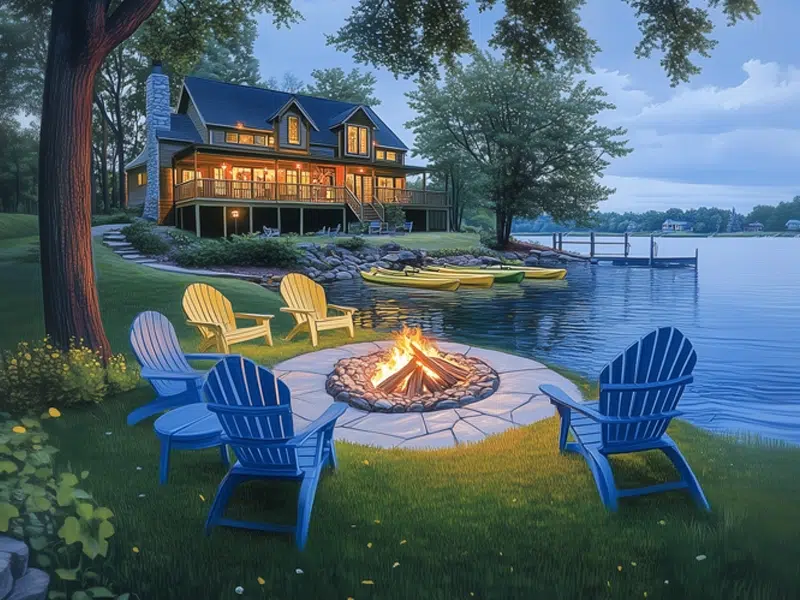Active Airbnb Laws and Regulations in the State of Arizona
Reflecting the state’s diverse landscapes and communities, Arizona’s approach to short-term rental laws and regulations widely varies. It’s essential to understand the local ordinances that apply to the location of your short-term rental to ensure that you are operating legally and providing a safe experience for your guests.
If you have questions about the insurance requirements for short-term rentals in Arizona, contact Proper Insurance. Our agents are experts in the vacation rental industry. Call 888-631-6680.

Paradise Valley, Arizona Vacation Rental Home Laws
Airbnb Law Includes New Amendments, Liability Insurance Requirement
There are many new Airbnb law changes and additions to the Paradise Valley, Arizona Short-Term Rental Ordinance. Below are some of the more important changes to take notice of:
- Booking Information: The new ordinance states that within 24 hours of every booking the owner of the vacation rental shall promptly provide the information below to the Town, on a form or a platform specified by the Town.
- A copy of the Short-Term Rental’s advertisement or listing upon which the relevant booking occurred, along with the name of the Online Lodging Marketplace accommodating the listing
- The dates for which a guest booked the Short-Term Rental and the number of people in their party;
- Evidence of compliance with Section 10-14-5(B).
- Evidence that the booking guest has acknowledged receipt of the statement of rules and regulations prepared by the Town, and has agreed by that acknowledgment to comply with such rules and regulations.
Enhanced Penalties
- First offense – $500
- Second offense on the property within 12 months – $1,000
- Third and subsequent offense within 12 months – $1500
Within the new vacation rental Airbnb laws, the Town of Paradise Valley has included a liability insurance requirement stated below:” Have either (1) liability insurance to cover the Short-Term Rental in an amount determined appropriate by the insurance company insuring such Short-Term Rental, but in no case, an amount less than one million dollars ($1,000,000) in the aggregate, or (2) equal or greater insurance coverage is provided for the Short-Term Rental through the Online Lodging Marketplace through which the property is booked ” – Section 10-14-5.(B).(1).(a) One of the biggest areas of risk exposure when operating a short-term rental is liability. The second that you open your door to guests, your liability risk immediately increases.
Whether it’s a slip and fall or a fire in the suite, you as the host can be held liable. By including an insurance requirement of no less than one million dollars in aggregate, we can assume that the city council has seen the increased risks of short-term renting and want to ensure that you’re properly protected as a host. We at Proper Insurance understand the importance of a policy that’ll protect your short-term rental operations and have custom-written a commercial general liability policy specific to vacation rentals.
The City Council notes in part 2 of the insurance requirement that insurance coverage through an online lodging marketplace would be sufficient. If you as a host are leaning towards using the hosting platform’s insurance provided, we highly recommend that you read through the policy, as it may state that it’s insurance but won’t actually provide you with the coverage you need.
For example, Airbnb’s AirCover Protection Plan does NOT actually replace your homeowner’s insurance. We understand that insurance can be confusing and that’s why we’ve written a blog that dives deeper into the AirCover Protection Plan and lays out what you should be aware of regarding their policy.
Read the blog here: A Deeper Look Into Airbnb’s AirCover Protection.
Phoenix, Arizona Short-Term Rental Laws
Approves New Airbnb Laws and Regulations
At the start of January 2020, Phoenix implemented Airbnb laws and regulations for short-term rentals requiring hosts to register their rental properties with the city. The city hopes the new regulations will cut out party houses and ensure safe neighborhoods for locals and guests. Ordinance G-6653 includes vacation rental requirements, violations, and enhanced penalties.
When registering for a vacation rental permit the owner must include the following information:
- Property owner name
- Vacation rental address
- Phone number and email address of the property owner or property owner’s agent who has the authority and responsibility to respond to complaints in person, over the phone, or by email at any time of the day.
Interested in starting your own Short-Term Rental Business? Continue to the City of Phoenix’s User Guide to learn more about their Airbnb Laws
Scottsdale, Arizona, Short-Term Rental Regulations
Scottsdale Airbnb Laws Requires a License for Properties Renting Under 30 Days
The City of Scottsdale Ordinance No. 4566 requires a license for anyone renting out their property for less than 30 days. The city also requires that hosts are compliant with several safety, health and neighborhood requirements. The current regulations are in place:
- Licensing: All properties rented for less than 30 days must have a Scottsdale Short-term Rental License. The annual license fee is $250 per property. Licensing requirements include obtaining a Transaction and Privilege Sales Tax (TPT) License from the Arizona Department of Revenue.
- Insurance: Within 30 days of licensure, owners must provide proof of insurance with liability coverage of at least $500,000. While that is the state requirement, STR insurance experts encourage owners to not only have an adequate limit of coverage (starting at $1M) but also confirm what a policy’s liability coverage includes. Many standard policies contain exclusions for liability.
- Signage: Display a Short-term Rental Notice generated on the Scottsdale City website. Signs must comply be 14-point bold font, laminated.
- Neighbor Notification: Within 30 days of receiving the license, property owners must notify neighbors with a letter that includes the STR license number, physical address, and a 24-hour emergency contact. This includes notifying all single-family residential properties adjacent to, directly and diagonally across the street, or in a multi-family building on the same floor.
- Registration: Register property with Maricopa County Assessor.
- Compliance: Owners must adhere to safety, health, and neighborhood requirements, and keep contact information updated. If applicable, properties with pools must comply with specific barrier requirements to ensure safety.
- More Info: Check the City of Scottsdale’s website and the Scottsdale Short-Term Rental Guide for more information and updates.
Upgrade Your Short-Term Rental Insurance Today
Looking for a policy that’ll protect you and your rental business from liability and damage claims?
Proper Insurance is the nation’s leading short-term rental insurance provider, protecting homes in all 50 states and replacing inadequate Homeowners/Landlord policies. Their comprehensive coverage meets or exceeds standard short-term rental requirements with $1M Commercial Liability (CGL) and unmatched protection for your property and revenue.
Additional custom coverages include guest-caused theft/damage, amenity liability (bikes, kayaks, hot tub, etc.), bed bugs, fleas, squatters, and more.
Please note: The information provided is intended as a guide and may not be comprehensive or current. Regulations may change and could vary by area or situation. Always consult local authorities or a legal professional to ensure you have the most accurate information for your short-term rental property.



